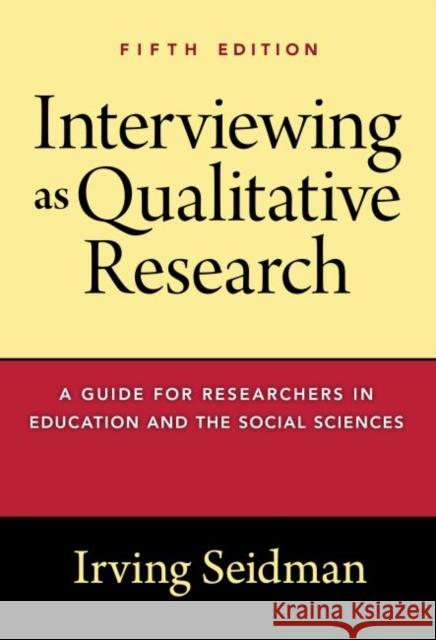Interviewing as Qualitative Research: A Guide for Researchers in Education and the Social Sciences » książka
topmenu
Interviewing as Qualitative Research: A Guide for Researchers in Education and the Social Sciences
ISBN-13: 9780807761489 / Angielski / Miękka / 2019 / 196 str.
Interviewing as Qualitative Research: A Guide for Researchers in Education and the Social Sciences
ISBN-13: 9780807761489 / Angielski / Miękka / 2019 / 196 str.
cena 151,83
(netto: 144,60 VAT: 5%)
Najniższa cena z 30 dni: 149,97
(netto: 144,60 VAT: 5%)
Najniższa cena z 30 dni: 149,97
Termin realizacji zamówienia:
ok. 30 dni roboczych.
ok. 30 dni roboczych.
Darmowa dostawa!
Kategorie:
Kategorie BISAC:
Wydawca:
Teachers College Press
Język:
Angielski
ISBN-13:
9780807761489
Rok wydania:
2019
Ilość stron:
196
Waga:
0.27 kg
Wymiary:
22.61 x 15.49 x 1.27
Oprawa:
Miękka
Wolumenów:
01
Dodatkowe informacje:
Bibliografia











